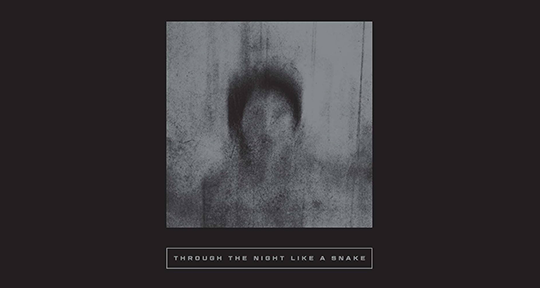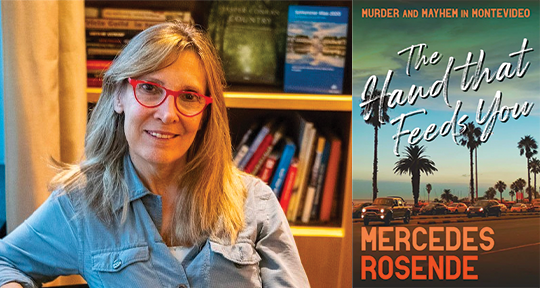The Hand That Feeds You by Mercedes Rosende, translated from the Uruguayan Spanish by Tim Gutteridge, Bitter Lemon Press, 2023
The Hand That Feeds You is Uruguayan author Mercedes Rosende’s sequel to Crocodile Tears, the thriller that won her the prestigious German literary award LiBeraturpreis in 2019, and it continues the author’s track record of bringing powerful, darkly comic crime novels to her readers. The duo of Rosende and translator Tim Gutteridge work together to fill these pages with characters both strong and deeply flawed—none more so than the protagonist Ursula López—living in the Old Town of Montevideo which, similar to its inhabitants, hides more than it shows.
The high octane beginning nails the reader into their seat in Rosende’s theatre; the narrative feels cinematic throughout, with the author always adept in choosing what to spotlight, what to lampshade, when to pan out, and when to zoom in. The narrator is all-knowing, telling us what is happening and what will happen in the same sentence, but also proves adept at knowing when to let the characters speak for themselves for the benefit of the reader—a mark of Rosende’s command over her prose’s flow. There are many places where the focus shifts from the action to the characters, integral in showing the individual states of mind:
We see her face in close-up: she is flushed, and perspiration is starting to accumulate around her open, smiling mouth. She is lightly made up, just enough to accentuate her beauty. She has taken great care over her clothes, loose black garments that suit her, even if many people, slaves to ideals of beauty imposed by some mysterious criterion, would say she is a few pounds overweight.
The people of The Hand That Feeds You are involved in a bank heist gone wrong, and by writing such vivid personal presences, Rosende allows readers time to catch breath between tense moments, all playing out amidst the backdrop of commentary on society and life in Montevideo—the author’s own hometown. In the crime’s aftermath, the robbers, the cop, and the lawyer who is behind the whole thing become engaged in a game of cat and mouse with Ursula—who drops in at an opportune moment to make away with the money.
The language does not try to override the plot in importance and impact (there isn’t much need for ornate style in a page-turner that has one holding one’s sides and breath in equal measure) but it has peculiarities that again, draw the eye to certain elements that Rosende and Gutteridge want us to focus on. For instance, there is something off about most of the characters that populate the novel. Ursula’s companion Diego, always at the mercy of the people around him and his own fears, “opens his eyes like a ventriloquist’s dummy”; his lawyer, Antinucci, has an unnatural smile and eyes like hard-boiled eggs. Our protagonist Ursula has schizophrenic conversations with her dead father. All these elements lend their characters something unnatural, broken. A touch of the preternatural also hangs over them, be it a haunting, a religion, or a reversion to superstition and a desperation for signs to aid decision-making in moments of stress. READ MORE…


